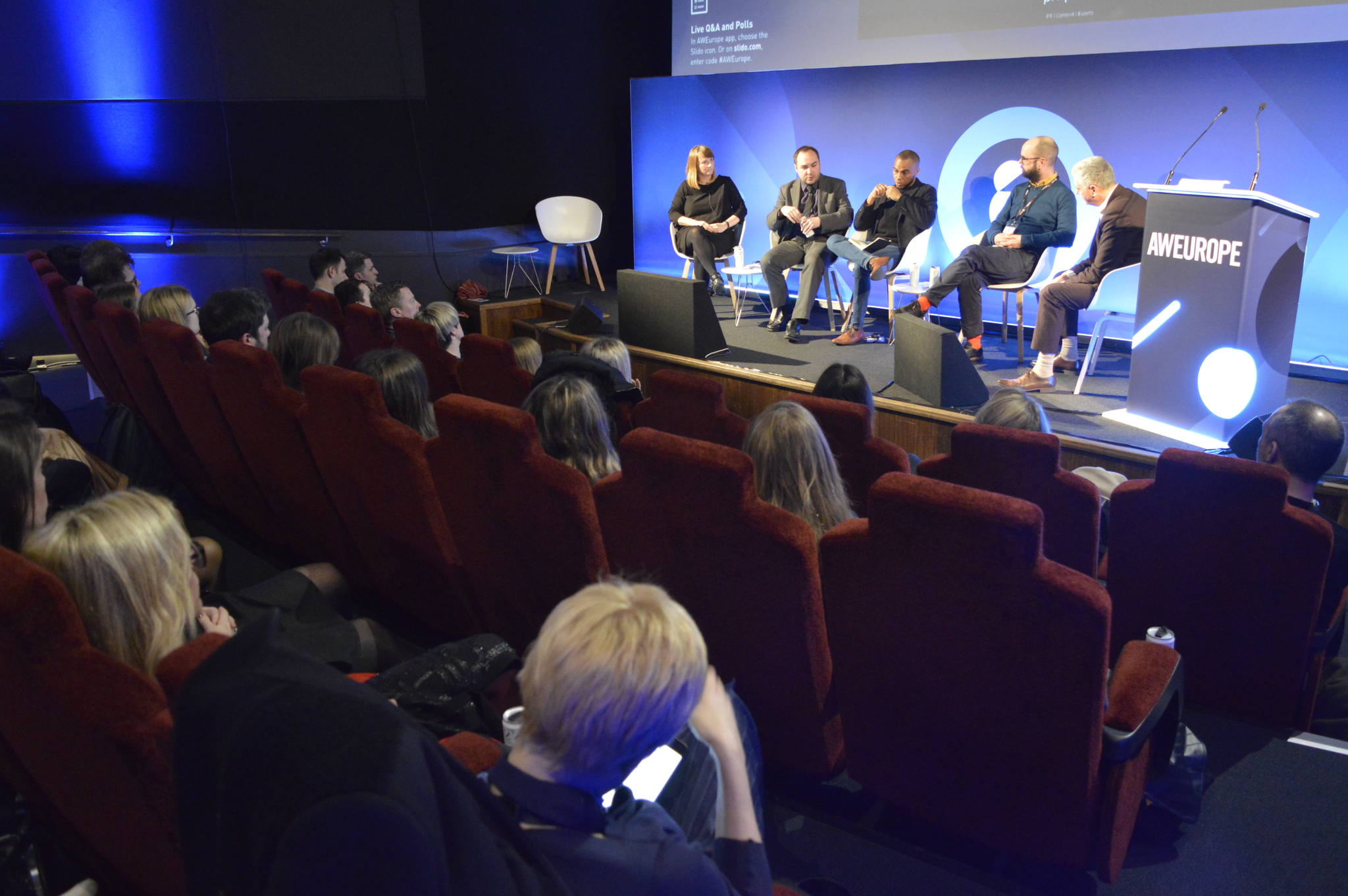
“I don’t just want to know ‘this happened,’ I want to know why and how” – just one insight from Propeller’s Wallflowers at the Orgy Panel at Ad Week Europe, where we brought together editors from the leading UK advertising and marketing trade media.
The role of the trade journalist has had to adapt to become more investigative and analytical than ever before because the titles are increasingly in competition with the journalists of the national press, as brand and ad tech-based stories spill into the national arena. The editors all made the point that it is no longer simply a case of reporting news, but really getting under the skin of the story, looking at the wider implications and how it will they directly impact readers.
The Wallflowers at the Orgy panel is a format Propeller has pioneered at AWE and Cannes Lions to turn the tables on journalists. This year’s panel featured Russell Parsons, Editor of Marketing Week, Rachel Barnes, Editor of Campaign, Stephen Lepitak, Editor of The Drum and Seb Joseph, Brands Editor, UK at Digiday. It was chaired by Propeller’s Director of Content and former trade journalist Branwell Johnson.
While news remains the bedrock of coverage and the trade media remain competitive (off the record briefings are still their bread and butter) that that the print schedule is now monthly for those legacy titles (not Digiday) means there is time to deliberate over stories and ensure that articles reflect the unique voice of each publication.
The editors are realistic about gaining exclusive interviews and said this cannot be expected with high-profile names like Unilever’s Keith Weed. The priority now lies with the analysis, drawing out implications and finding unique angles.
Stephen Lepitak acknowledged the changing nature of news, saying that although there is no reporter in the world who doesn’t love breaking a story, they are trying to be more thoughtful about how they approach stories. The key is to move the conversation forward and get people talking.
Seb Joseph added, “What differentiates us in the marketplace is that the analysis part of our reporting now is far more important in what we do, as opposed to just nailing the lead.”
For Russell Parsons, the best stories are those that inform one of Marketing Week’s five key areas of interest for its audience, which include career development, learning about tech and brand building, measurement and effectiveness.
Rachel Barnes reflected on Campaign turning 50 this year and the pros and cons that come with being a long-established title. She said a lot of senior people in the industry have grown up with Campaign and the magazine is an integral part of the industry. This does not mean that editorial avoids critiquing the industry. Instead it enjoys the best of both worlds by having the capability to stand back and comment on the industry as a whole in an objective way, whilst also being able to celebrate great work and champion advertising.
Five recommendations for PRs and Comms managers looking to pitch stories:
- Know the title’s audience, its priorities, its areas of expertise and most importantly know what that title is interested in.
- Be aware of what’s happening in the industry and how it relates to your story.
- Be up to date with who is covering a story or a trend and speak to the relevant journalist.
- Think about the angle and why the story matters. Your take should be on what makes the story different and why it is not ‘business as usual’.
- If you look like your pitch is just to help your clients sell their wares or you will be transferred to the commercial team.